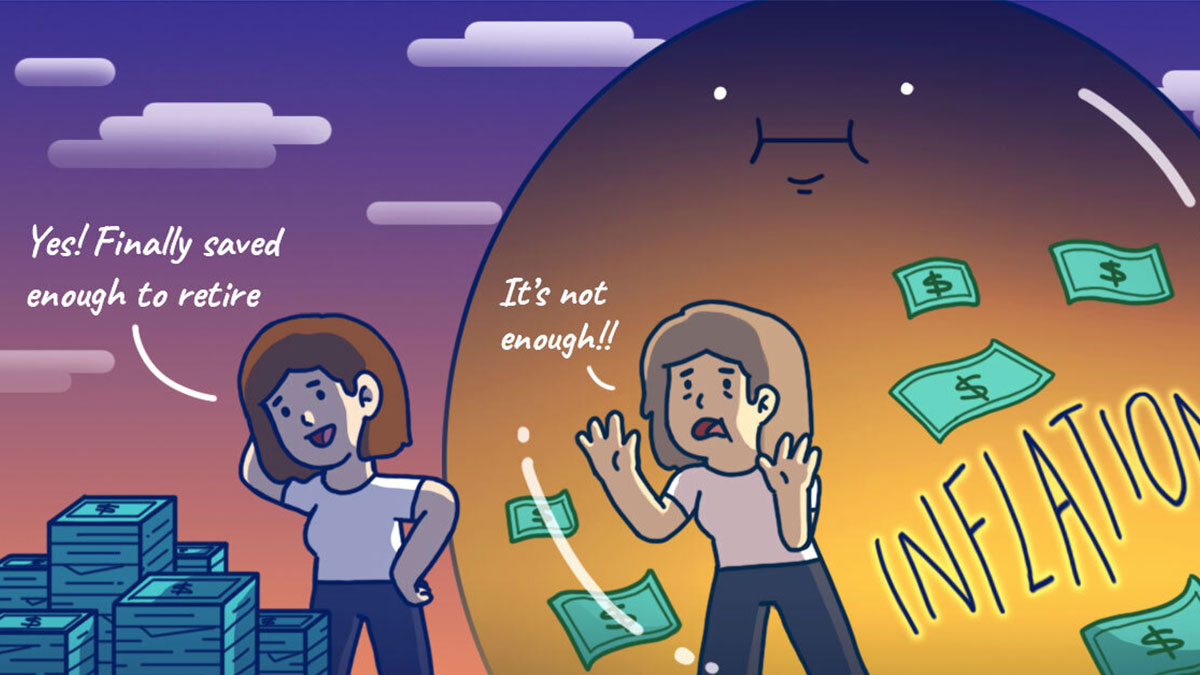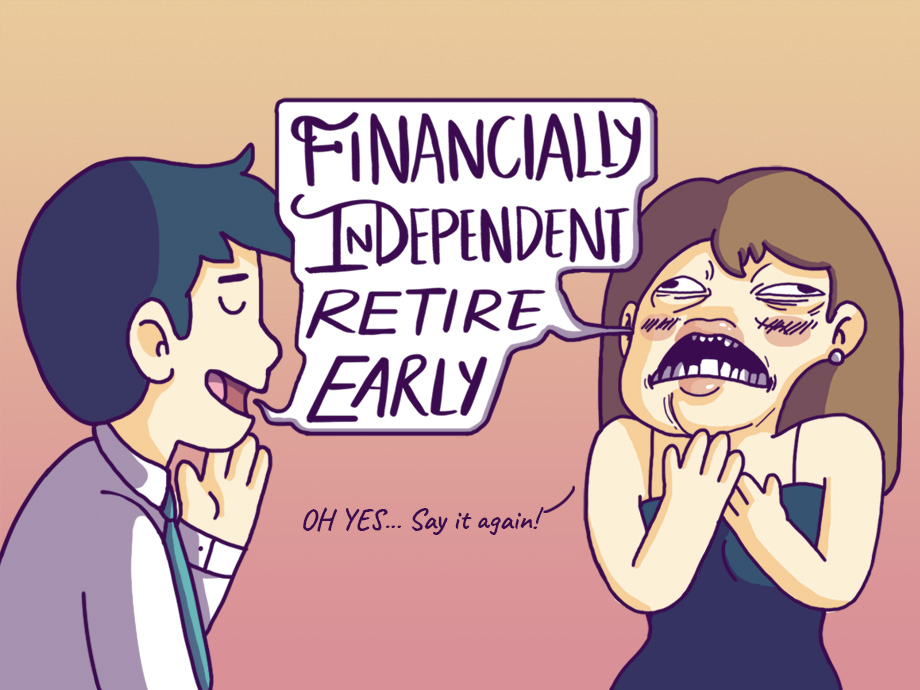Financial Planning | Personal Finance | Article
Return of the Inflation Boogeyman
by Sophia | 24 Aug 2020 | 4 mins read

Inflation is a lot like the barrage of questions about your singlehood at family gatherings — unstoppable. You know it’s coming and it always gives you a sense of dread.
In a previous article, we explained what inflation was and why some types of inflation are actually good (and, of course, that massive inflation is always bad).
High rates of inflation are the boogeyman that insurance agents (and even us!) use to urge others to do something about their finances, like making sure one’s income growth and investment returns beat inflation. All of this will reduce the burden on your savings.
But the financially savvy among us are likely aware of the fact that inflation has been really low the last five years. In Singapore, inflation has been below 1% — even negative in 2015 and 2016.
So who cares about inflation, right?
Unfortunately, it’s 2020, and reboots are all the rage. And guess what? Inflation is making a (terrible) comeback.
OK, But Why Tho
Governments worldwide are going into (deeper) debt from rolling out those eye-watering, expensive COVID-19 support packages. The U.S government has already racked up an all-time record amount, near 6 trillion worth of debt in just 10 months — and 2020 isn’t even over yet! *cries*

Here’s the problem: Once the economy starts recovering, governments will find interest rates hard to raise — after all, they’d end up jacking up the interest they owe on their own debt.
How does this relate to inflation? Well, interest rates are the weapon of choice against inflation.
Traditionally, when inflation increases, central banks, in turn, increase interest rates. This makes saving attractive and borrowing expensive. Spending is dampened and so is inflation. Done deal.
But now, governments’ hands are tied because of their debts. They can’t raise interest rates without their payments snowballing — if not, they’ll need to increase taxes. Talk about being stuck between a rock and a hard place.
But this is us putting it simplistically. We won’t pretend to be economists. Read more on this with THE Economist (requires a sign-up).
So what seems to be almost certain is that higher inflation is coming. Even the Fed is starting to signal that they would allow inflation to rise — at what rate, has yet to been confirmed, but higher than the traditional 2% target seems almost definite.
The scenario faced by the US is the same for developed countries across the world, so this is not just an American problem. Singapore is plugged into the international grid, so it’s likely coming for us too.
So, What Can We Do About It?
Salaries must rise in tandem
If there’s a perfect time to be a star employee, it’s now. When the economy inevitably recovers, watch the rate of inflation closely. MAS consumer price index figures are something to pay attention too, along with your expenditure. As inflation increases the cost of goods, your income needs to beef up as well. If not, you’re technically taking an inflation “pay cut”.

Take advantage of low interest rates on home loans
The Fed, which influences our local bank interest rates (thus our HDB mortgages) have pledged to keep interest rates low till at least 2022. Now’s your chance to take advantage of these low rates and cut back on the money you’re spending, especially for something as important as a home!
Investing
Shiny metals serve as great armour against inflation (their value increases when inflation lowers the value of the dollar). If you really want to take an active stance and bet that inflation will happen, you could invest in gold or even silver as a fixed portion of your investment. But here comes the old investing adage, even for seasoned pros: always diversify, and don’t go all in.
Here’s a caveat though: long-term growth of gold has paled in comparison to stocks, so having gold isn’t that important for a younger investor, who’s in his wealth-growing phase.
Which brings us to our last point: Investing in stocks has historically been one of the most effective ways to beat inflation over the long term.
Here’s Some Good News (Phew)
GIC’s prediction is this: that the risk of higher inflation might happen over the medium-term. In finance speak, that means three to five years of higher than usual inflation.
We’re hoping GIC is right. But, whether it’s levelling up our salaries, cutting costs or making certain investment decisions, it’s best to prepare ourselves for the wrath of the inflation boogeyman.
















